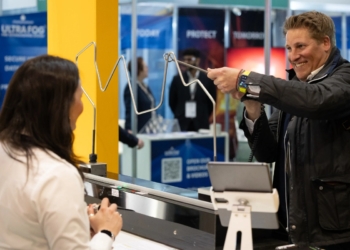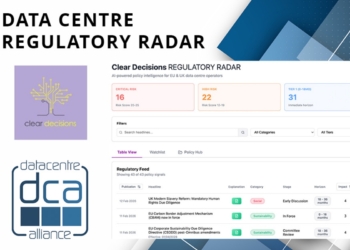House of Lords AI summit highlights cyber threats
Author: Joe Peck

Technology industry leaders gathered in the House of Lords yesterday for a high-profile debate on the transformative role artificial intelligence (AI) will play in the UK jobs market.
The discussion, chaired by Steven George-Hilley of Centropy PR, brought together experts to address key industry challenges, including the digital skills shortage and AI’s potential to enhance compliance and accelerate digital transformation across key areas of the UK economy.
The debate highlighted the growing role of AI in reshaping traditional job roles and powering a new wave of relentless cyber threats which could damage British businesses.
Key speakers, including Richard Cuda of Kasha, discussed the role AI and digital technology can play in helping entrepreneurs launch their own business.
Leigh Allen, Strategic Advisor, Cellebrite, says, “In a world where police forces are under increasing strain to combat crime and national security threats, AI technology represents a key enabler in unlocking digital evidence and significantly reducing investigation times. Cellebrite delivers secure, ethical access to digital evidence, using AI to accelerate investigations while closing the digital skills gap for modern law enforcement. We don’t just respond to digital threats—we equip agencies to lead with confidence in a complex, tech-driven world.”
Dr Janet Bastiman, Chief Data Scientist, Napier AI, comments, “Financial crime is one of the biggest threats facing the UK economy right now, and in AI we have the answer. AI-driven anti-money laundering solutions have the capacity to save UK financial institutions £2.2 billion each year, helping to bolster compliance processes, improve the accuracy of transaction screening, and monitor transaction behaviour to more effectively identify criminal networks.”
Linda Loader, Software Development Director, Resonate, suggests, “AI has the potential to significantly enhance operations in the rail industry by enabling faster and more efficient services. But this must be underpinned by quality data to drive innovative solutions that prioritise security and robust protection for our critical national infrastructure. By exploring smaller AI use cases now, we can build a solid foundation and understanding for more extensive, secure transport applications in future.”
Chris Davison, CEO, NavLive, mentions, “By using cutting edge AI and robotics technology to create automated 2D and 3D models of buildings in real time, we can make retrofits, brownfield developments more efficient and contribute to sustainable building practices. NavLive saves architects, engineers and construction professionals time and money, by providing accurate real time spatial data across the lifecycle of a building.”
Richard Bovey, Chief for Data, AND Digital, states, “The AI winners are the businesses that have invested the most in AI experimentation, underpinned by years of strong data foundations, meanwhile, SMEs are quickly watching a widening AI gap. But all isn’t lost, investing in data and modern tooling can stop the slide, helping businesses to keep pace and preventing a significant competitive disadvantage from taking over.”
Arkadiy Ukolov, Co-Founder and CEO, Ulla Technology, says, “As AI adoption continues to skyrocket, we must ensure that privacy and data security remain a critical component of development. Most of the popular AI tools send data to third-party AI providers, which may use client data to train models. This is unacceptable for sensitive meeting discussions and confidential documents, as it opens them up to data leaks. Placing safety and ethics at the centre of the discussion is the only route that we can take forward as AI evolves.”
For more on cyber security, click here.








